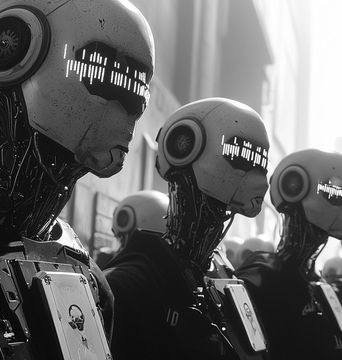AI WORKERS DEMAND WHISTLEBLOWER PROTECTIONS AMID GROWING TECH THREATS

As advancements in the artificial intelligence (AI) sector progress at an exponential rate, the imperative to safeguard ethical concerns surges. At the epicenter of this issue are the employees of AI firms who find themselves caught in a legal loophole, unable to blow the whistle on unethical practices in the absence of specific safeguards. Increasing concerns over AI-manifested threats such as deepfake videos or discriminatory algorithms have propelled these workers to call upon the US Congress to instate specific whistleblower protection rights, that fall beyond the currently existing legal framework.
The state of AI development today sees a vast potential for misuse, with minimal legislation designed to mark and tackle these violations. The industry's attempts to self-regulate have seemed to fall short of expectations, resulting in employees seeking out legislative regulation. As it stands, the thrust of federal whistleblower protection laws pertain to tax evasion, money laundering, foreign bribery, or Medicare/Medicaid fraud. Sadly, none touch upon technology, more specifically, AI-related ethics breaches.
The landscape, however, might soon be due for a turn. The Congress is poised to address this very issue in an upcoming legislative session, with discussions of an AI-specific package on the table. This could mean a potential spike in Research and Development schemes, alongside guidelines for AI use.
Stephen Kohn, an attorney specializing in whistleblower protection, has underscored the dire necessity of establishing AI whistleblowing rights through Congress. He argues that courts often hesitate to act in the absence of pre-existing legislation. Echoing these sentiments, OpenAI CEO, Sam Altman, received a letter from Senator Grassley expressing concerns that standard non-disclosure agreements could potentially muzzle employees from making protected disclosures to government regulators.
Grassley posits that a productive model could involve Congress and the private sector joining hands to reinforce whistleblower protections. In the past, technology employees who have invoked federal whistleblower protections have had to cite laws that wouldn't necessarily cover the expansive range of issues presented by AI's rapid development.
In summation, this potential legislation could serve as a significant step towards ensuring transparency and accountability in an industry that carries notable influence over our future. Proactive adaptation of the legal framework could ensure the safe and ethical evolution of AI, and provide insights into navigating the unprecedented challenges awaiting in the digital age. This change, if enacted, may set a new precedent, pushing other nations to follow suit, thereby ensuring the impartial and responsible use of AI worldwide.